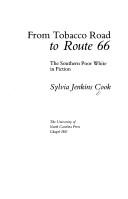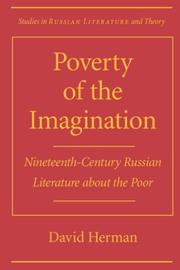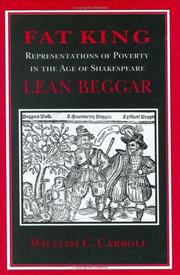| Listing 1 - 10 of 28 | << page >> |
Sort by
|
Book
ISBN: 9783846767337 9783770567331 3846767336 Year: 2024 Publisher: Paderborn, Deutschland : Brill Fink,
Abstract | Keywords | Export | Availability | Bookmark
 Loading...
Loading...Choose an application
- Reference Manager
- EndNote
- RefWorks (Direct export to RefWorks)
Die Armen sind immer die Menge der Armen – aber wie wird diese Menge dargestellt in Literatur und Kulturgeschichte? Was heißt es, die Menge der Armen zu repräsentieren oder für Sie Partei zu ergreifen? Die Beiträge dieses Bandes nähern sich dem Phänomen aus unterschiedlichen Blickwinkeln und fragen nach dem Bild und den Repräsentationsmöglichkeiten der Armen in Europa und Lateinamerika; den Konstellationen und Konvergenzen von Menge und Masse; den Sichtbarkeiten von Subjekten in der Menge und der Menge als (politisches) Subjekt. Der Band untersucht die Begriffe, Praktiken und Ästhetiken, die sich im Verhältnis von Menge und Armut überschneiden.
Poor --- Poor in literature. --- Poverty --- History.

ISBN: 0807812641 Year: 1976 Publisher: Chapel Hill University of North Carolina press
Abstract | Keywords | Export | Availability | Bookmark
 Loading...
Loading...Choose an application
- Reference Manager
- EndNote
- RefWorks (Direct export to RefWorks)
American fiction --- Working class whites in literature. --- Poor in literature. --- History and criticism. --- Southern States --- In literature. --- Poor in literature --- Working class whites in literature --- History and criticism

ISBN: 9788484442462 8484442462 Year: 2001 Publisher: Granada: Comares,
Abstract | Keywords | Export | Availability | Bookmark
 Loading...
Loading...Choose an application
- Reference Manager
- EndNote
- RefWorks (Direct export to RefWorks)
Spanish fiction --- Poor in literature --- Social classes in literature --- Picaresque literature, Spanish --- Antiheroes in literature

ISBN: 0810116928 0810121301 9780810121300 9780810116924 Year: 2001 Publisher: Evanston, Ill. Baltimore, Md.
Abstract | Keywords | Export | Availability | Bookmark
 Loading...
Loading...Choose an application
- Reference Manager
- EndNote
- RefWorks (Direct export to RefWorks)
The primal scene of all nineteenth-century Western thought might well be the moment an observer gazed at someone poor, most commonly on the streets of a great metropolis, and wondered what the spectacle meant in human, moral, political, and metaphysical terms. In Russia, where so much of the population was impoverished, the moment held special significance. David Herman examines how Russian writers portrayed this poverty and what their portrayal reveals and articulates about core values of Russian culture.Focussing on specific texts but addressing the literary tradition as a whole, Herman begins with Karamzin's immensely popular story "Poor Liza", the first in a sequence of poverty narratives that self-consciously address one another. He then considers Pushkin's "Egyptian Nights"; Gogol's "Overcoat", Petersburg tales, and Selected Passages; and Dostoevsky's Idiot and 1880 "Pushkin speech".With a series of innovative readings, Poverty of the Imagination teases out a Russian discourse on lack which owes its peculiar richness to an insistence on solving simultaneously problems of social justice, national identity, and the ethics of the human imagination. As prominently as poverty figures in Russian literature, this is the first sustained analysis of its literary, conceptual, and cultural implications. As such, it deepens our understanding and appreciation of some of the most widely read literature of all time.
Russian literature --- Poor in literature. --- Poverty in literature. --- History and criticism.
Book
ISBN: 3110925907 3484450231 Year: 2017 Publisher: De Gruyter
Abstract | Keywords | Export | Availability | Bookmark
 Loading...
Loading...Choose an application
- Reference Manager
- EndNote
- RefWorks (Direct export to RefWorks)
Working class whites in literature. --- Naturalism in literature. --- Poor in literature. --- Law, John,
Book
ISBN: 3846744476 Year: 2008 Publisher: Paderborn : Wilhelm Fink Verlag,
Abstract | Keywords | Export | Availability | Bookmark
 Loading...
Loading...Choose an application
- Reference Manager
- EndNote
- RefWorks (Direct export to RefWorks)
Armut, ein globales und menschheitsgeschichtliches Phänomen, zählt zu den drängendsten Problemen der Gegenwart. Doch jenseits politischer Diskurse und medialer Skandalisierungen scheinen Not, Mangel und Ausgrenzung kaum ein ästhetisches Recht beanspruchen zu können. Die Gleichsetzung von ästhetischem und materiellem Vermögen wird indes bereits in der Antike kritisch reflektiert. Dass auch in der deutschsprachigen Literatur unschöne Armut und schöne Literatur nicht notwendig im Widerspruch zueinander stehen, belegen die Autorinnen und Autoren des Bandes. Die Beiträge rücken die produktive Spannung zwischen den materiellen Bedingungen und ihren ästhetischen Transformationen als vielgestaltige Ökonomien der Armut in den Blick. Nicht zuletzt stellt sich mit der Frage nach den sozialen Verhältnissen in der Literatur auch diejenige nach einem social turn in den Kulturwissenschaften.
Poverty in literature. --- Poor in literature. --- Social classes in literature. --- German literature --- History and criticism.
Book
ISBN: 9781478031024 9781478026747 Year: 2024 Publisher: Durham Duke University Press
Abstract | Keywords | Export | Availability | Bookmark
 Loading...
Loading...Choose an application
- Reference Manager
- EndNote
- RefWorks (Direct export to RefWorks)
"For generations most of the canonical works that detail the lives of poor people have been created by rich or middle-class writers like Charles Dickens, John Steinbeck, or James Agee. This has resulted in overwhelming depictions of poor people as living abject, violent lives in filthy and degrading conditions. In Poor Things, Lennard J. Davis labels this genre "poornography"-distorted narratives of poverty written by and for the middle and upper classes. Davis shows how poornography creates harmful and dangerous stereotypes that build barriers to social justice and change. To remedy this, Davis argues, poor people should write realistic depictions of themselves but because of representational inequality they cannot. Given the obstacles of the poor accessing the means of publication, Davis suggests that the work should, at least for now, be done by "transclass" writers who were once poor and who can accurately represent poverty without relying on stereotypes and cliche̹s. Only then can the lived experience of poverty be more fully realized"--
Poverty in literature --- Poor in literature --- Authors --- Social classes in literature --- Authorship

ISBN: 0801431859 1501722484 Year: 1996 Publisher: Ithaca (N.Y.) : Cornell university press,
Abstract | Keywords | Export | Availability | Bookmark
 Loading...
Loading...Choose an application
- Reference Manager
- EndNote
- RefWorks (Direct export to RefWorks)
English literature --- Thematology --- History of civilization --- anno 1600-1699 --- anno 1500-1599 --- Beggars in literature. --- Literature and society --- Poor in literature. --- Poverty in literature. --- History
Book
ISBN: 3484450231 9783484450233 Year: 1984 Volume: 23 Publisher: Tübingen: Niemeyer,
Abstract | Keywords | Export | Availability | Bookmark
 Loading...
Loading...Choose an application
- Reference Manager
- EndNote
- RefWorks (Direct export to RefWorks)
Naturalism in literature --- Working class whites in literature --- Poor in literature --- Law, John, --- Law, John --- Law, John, - 1854-1923 - City girl
Book
ISBN: 2277210900 Year: 1980 Volume: 1090 Publisher: [Paris] : Editions J'ai lu,
Abstract | Keywords | Export | Availability | Bookmark
 Loading...
Loading...Choose an application
- Reference Manager
- EndNote
- RefWorks (Direct export to RefWorks)
French literature --- Poor in literature --- Literature and society --- Littérature française --- Pauvres dans la littérature --- Littérature et société --- France --- Social conditions --- Conditions sociales
| Listing 1 - 10 of 28 | << page >> |
Sort by
|

 Search
Search Feedback
Feedback About UniCat
About UniCat  Help
Help News
News